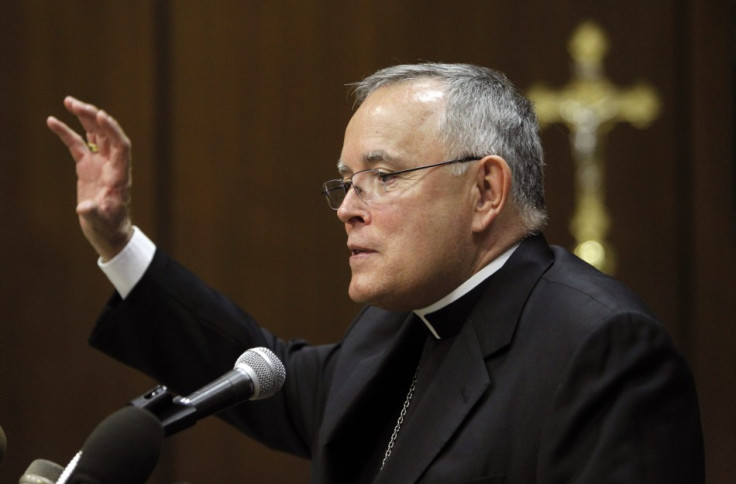No sex for divorcees, gays and those cohabiting, says US Catholic Archbishop Charles Chaput
Married divorcees can only receive Communion if they live 'as brother and sister', he says.
In a throwback to efforts by the head of the Catholic Church Pope Francis to open the church's doors to divorced people who remarry, an Archbishop in Philadelphia has taken on a different stance. No sex, Archbishop Charles Chaput tells married divorcees if they want to receive the Communion in his archdiocese.
This also extends to gays and cohabiting couples, according to his six-page instructions which appear on the archdiocesan website. The directives will be reflected in revised marriage preparation materials for the archdiocese over the next year.
The directive says: "This is a hard teaching for many, but anything less misleads people about the nature of the Eucharist and the Church.
Chaput said those who have remarried in civil marriages can only receive Communion if they abstain from sex and live "as brother and sister." He issued a new set of pastoral guidelines for clergy and other leaders in the archdiocese.
The rules take effect on 1 July. They are also seen as a reflection of the stance taken on by St John Paul II, AP reports.
The guidelines state: "Undertaking to live as brother and sister is necessary for the divorced and civilly remarried to receive reconciliation in the Sacrament of Penance, which could then open the way to the Eucharist."
The Catholic Church teachings say that unless divorced and remarried members receive an annulment of their first marriage from the church, they are committing adultery and therefore cannot receive the Communion.

Chaput said that the new instruction comes from Pope Francis' document on family life that was released in April. The document, called The Joy of Love, technically opens the door to divorced and civilly remarried Catholics. Although it did not automatically mean divorced and remarried couples could take Communion, it left the matter for bishops and priests to decide on a case-by-case basis.
This is very different from the 1982 document issued by John Paul II on family in which he proposed the brother-sister option for divorced and remarried couples as the only way to receive Communion.
The Philadelphia guidelines also takes things a step further. It says Catholics in same-sex partnerships, civilly remarried parishioners and unmarried couples living together should be allowed to serve on parish councils, instruct parishioners, serve as lectors or hand out Communion.
He said unmarried couples who live together should be "encouraged to practice chastity until they are sacramentally married. Couples who have no children should ready themselves for marriage by a time of domestic separation. Where a cohabiting couple already has children, the good of the young may require the couple to remain living together but in chastity.
© Copyright IBTimes 2025. All rights reserved.






















